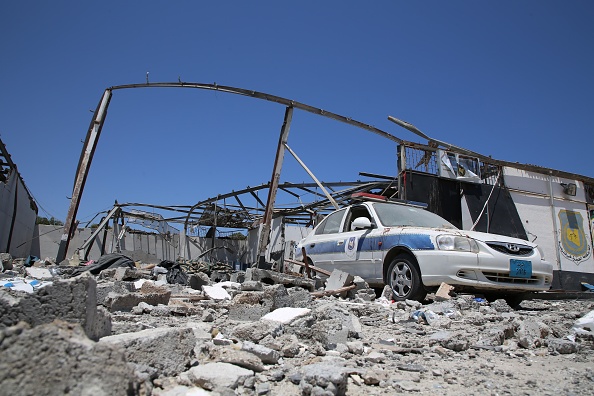
Death toll from Tripoli conflict hits 1,048: WHO

The death toll from the conflict in the Libyan capital Tripoli has reached 1,048, of which 106 are civilians, while another 5,558 others have been injured, of which 289 are civilians, according to the World Health Organisation.
The latest figures come in the wake of an attack on the Tajoura Migrant Detention Centre near Tripoli which killed 53 migrants and left 130 others injured.
The United Nations and African Union condemned the attack, blamed on Khalifa Haftar’s forces, and called for an immediate ceasefire.
The AU also called for the formation of an independent inquiry to establish facts around the attack.
Libya has experienced increased violence since Haftar of the Libyan National Army launched a military campaign in April to take over Tripoli, where the United Nations-backed Government of National Accord of Prime Minister Fayez al-Serraj is based.
Haftar’s LNA, which backs the eastern administration in Benghazi, took the oil-rich south of Libya earlier this year before advancing fast through largely unpopulated desert regions toward Tripoli.
Seizing the capital, however, has proved a much bigger challenge. The LNA had previously conducted air strikes on the south of the city in an attempt to advance along a road from a disused former international airport.
The WHO also called for a speedy and peaceful resolution of the conflict so that all people in Libya are safe from harm.
Despite the dangers of the conflict, the WHO said it will continue to ship medicines and ensure that health workers have the necessary requirements to treat people injured in the conflict.
19 ambulances have been impacted or suffered collateral damage since the fighting began, according to the WHO’s Eastern Mediterranean Regional Office. Additionally, six health workers have been killed and 10 others have been wounded in the conflict.






